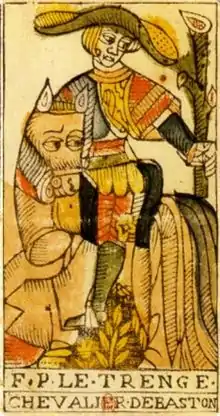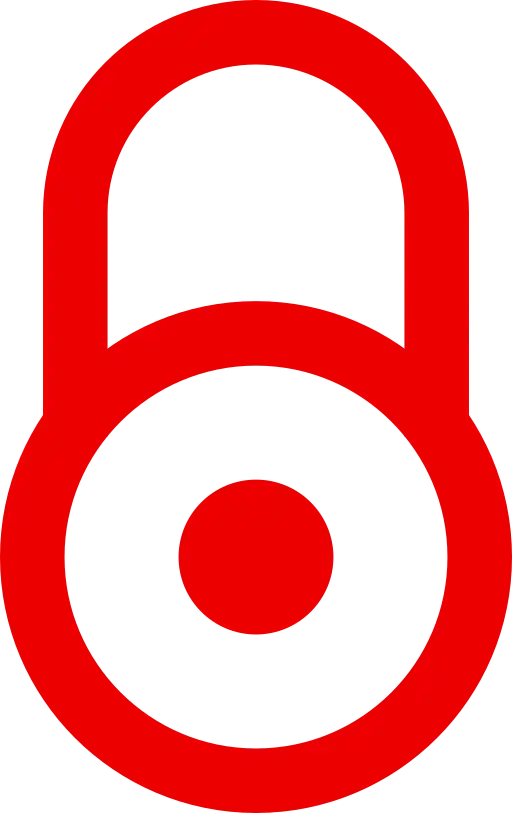chevalier
See also: Chevalier
English

Tarot: The chevalier of batons
Etymology
From Middle English chivaler or chevaler (also shyvalere while code-switching), from Anglo-Norman chevaler or chivaler, later refashioned after French chevalier, from Late Latin caballarius (“horseman”), from Latin caballus (“horse”).[1] Doublet of cavalier.
Pronunciation
- IPA(key): /ˌʃɛvəˈlɪə(ɹ)/
- Rhymes: -ɪə(ɹ)
Noun
chevalier (plural chevaliers)
Related terms
References
- “chevalier”, in OED Online
 , Oxford, Oxfordshire: Oxford University Press, launched 2000.
, Oxford, Oxfordshire: Oxford University Press, launched 2000.
French
Etymology
From Middle French chevalier, from Old French chevalier, from Late Latin caballārius, from Latin caballus. Doublet of cavalier.
Pronunciation
- IPA(key): /ʃə.va.lje/
audio (file) - Rhymes: -je
Derived terms
- chevaleresse
- chevalier blanc
- chevalier cuivré
- chevalier de la manchette
- chevalier de la rosette
- chevalier d'honneur
- chevalier d'industrie
- chevalier du guet
- chevalier errant
- chevalier servant
Related terms
Descendants
- Turkish: şövalye
Further reading
- “chevalier”, in Trésor de la langue française informatisé [Digitized Treasury of the French Language], 2012.
Middle English
Middle French
Alternative forms
Etymology
From Old French chevalier.
Related terms
Descendants
- French: chevalier
Old French
Etymology
From Late Latin caballārius, from Latin caballus.[1] Compare Old Occitan cavalier.
Noun
chevalier m (oblique plural chevaliers, nominative singular chevaliers, nominative plural chevalier)
Descendants
References
- Migliorini, Bruno; Aldo Duro (1950), “cavaliere”, in Prontuario etimologico della lingua italiana (in Italian), Paravia
This article is issued from Wiktionary. The text is licensed under Creative Commons - Attribution - Sharealike. Additional terms may apply for the media files.